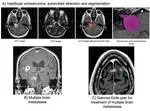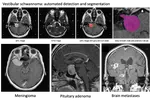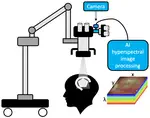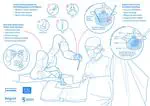Closed Position
Post overview:
- Focus: Translational research in biomedical optics for hyperspectral imaging based quantitative fluorescence linked with an in-patient neurosurgery clinical study
- Line manager: Tom Vercauteren
- Clinical collaborator: King’s College Hospital
- Industry collaborator: Hypervision Surgical
- Salary: Grade 6, £38,826 - £45,649 per annum, including London Weighting Allowance
Post overview:
- Focus: Translational research on real-time computing for hyperspectral imaging linked with an active neurosurgery clinical study
- Line manager: Tom Vercauteren
- Industry collaborator: Hypervision Surgical
- Clinical collaborator: King’s College Hospital
- Salary: Grade 6, £38,826 - £45,649 per annum, including London Weighting Allowance
Post overview:
- Focus: Translational research on hyperspectral-based quantitative fluorescence imaging linked with a neurosurgery clinical study
- Line manager: Tom Vercauteren
- Clinical collaborator: King’s College Hospital
- Industry collaborator: Hypervision Surgical
- Salary: Grade 6, £38,826 - £45,649 per annum, including London Weighting Allowance
Post overview:
- Focus: Real-time learning-based processing of hyperspectral imaging and its integration in complex robotic systems
- Line manager: Tom Vercauteren
- Related research project: FAROS
- Salary: Grade 6, £38,826 - £45,649 or Grade 7, £46,934 - £50,919 per annum, including London Weighting Allowance
![PhD opportunity [February 2024 start] on "Incorporating Expert-consistent Spatial Structure Relationships in Learning-based Brain Parcellation"](/post/2022-11-15-twaiparcellation/featured_hu_11228d5ca49d472d.webp)

![PhD opportunity [February 2024 start] on "Accurate automated quantification of spine evolution — it’s about time!"](/post/2022-11-13-spinequantification/featured_hu_29866223f35c9f14.webp)
![PhD opportunity [February 2024 start] on "Physically-informed learning-based beamforming for multi-transducer ultrasound imaging"](/post/2021-11-03-usbeamforming/featured_hu_1dcd108d7f697969.webp)


![PhD opportunity [June 2022 start] on "Computational approaches for quantitative fluorescence-guided neurosurgery"](/post/2022-03-24-qfhsiphd/featured_hu_fb288d650a2c9fe9.webp)


